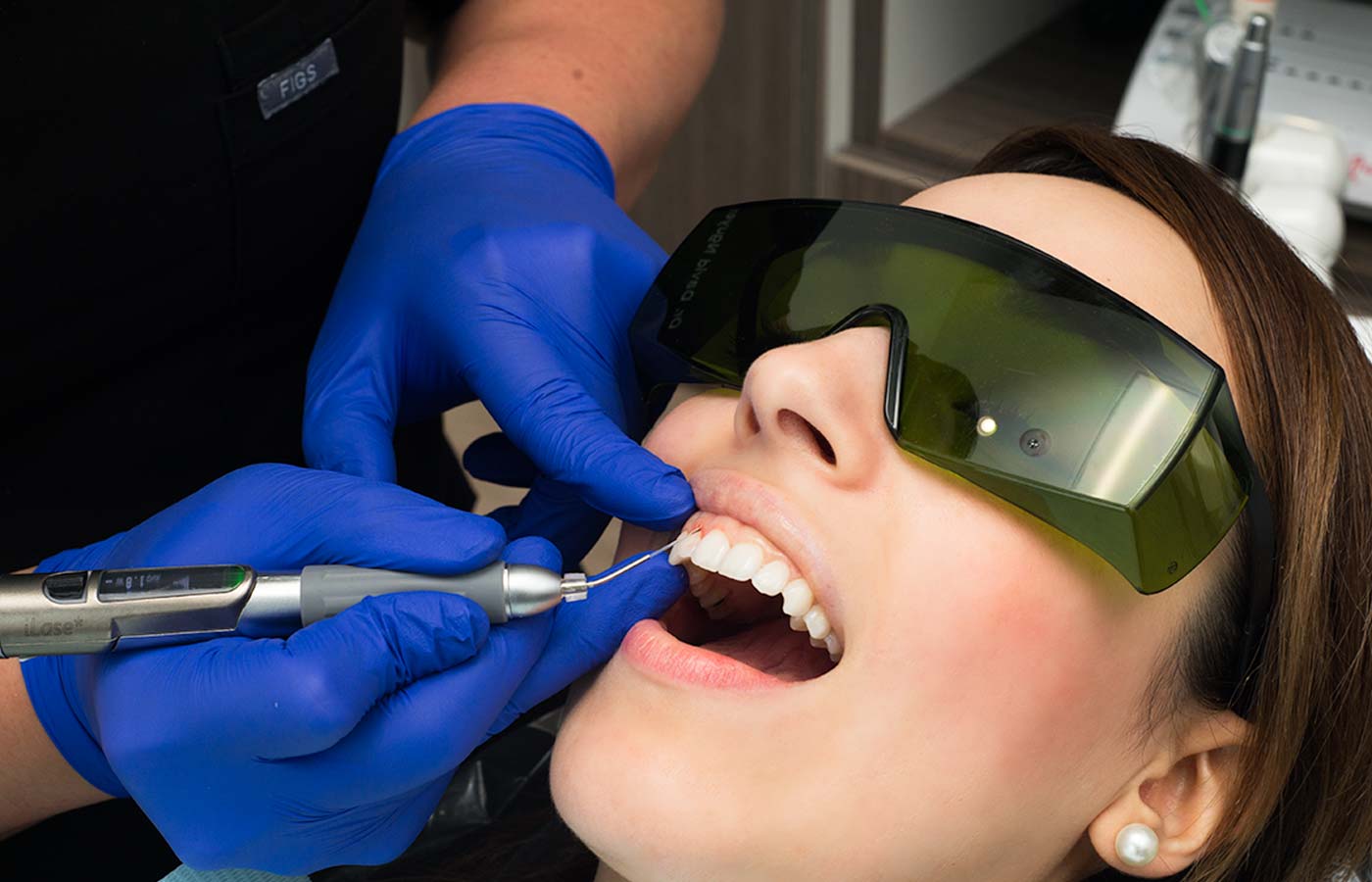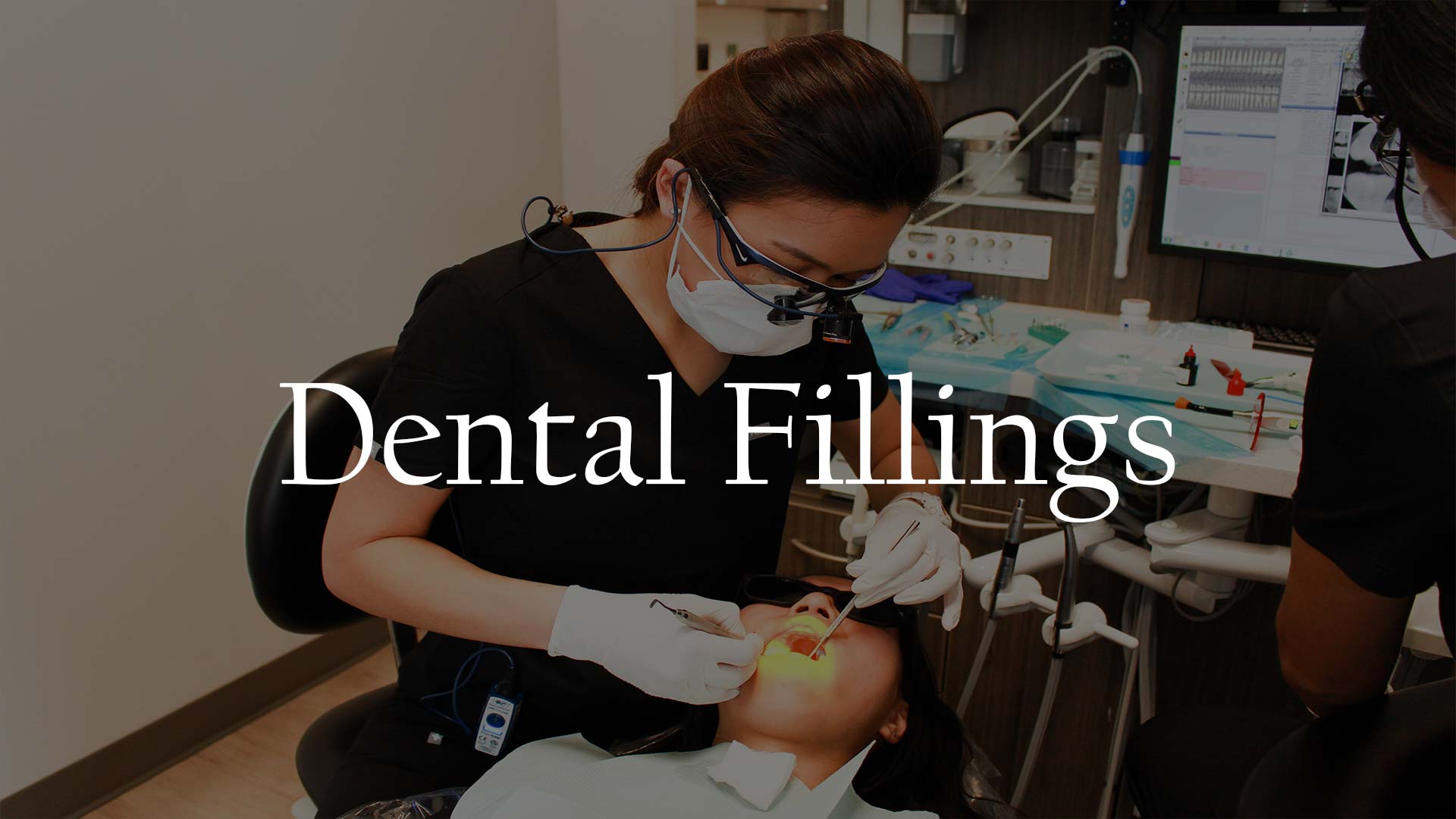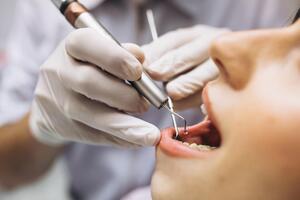MyWorldGo
Why Do Dentists Not Use Lasers?
Blog Information
- Posted By : Celeste Pecks
- Posted On : Jul 23, 2022
- Views : 273
- Category : General
- Description : This procedure uses lasers to treat various dental conditions, and it commercially started in 1989. This procedure offers a more comfortable treatment option for numerous dental procedures involving hard or soft tissue than drill and non-laser processes.
Overview
- This procedure uses lasers to treat various dental conditions, and it commercially started in 1989. This procedure offers a more comfortable treatment option for numerous dental procedures involving hard or soft tissue than drill and non-laser processes.LASER stand's for "light amplification by the stimulated emission of radiation." This instrument creates light energy into a narrow and focused beam. LASER reacts when a tissue hits and allows it to shape the tissue.Dentists use Laser Dentistry in various procedures, including:
- Treatment of hypersensitivity
- Tooth decay and bacterial infection removal
- Treating gum disease
- Laser Dentistry For Cavities
- Dentists use lasers to whiten the teeth
The laser can make dental procedures effective, efficient, and more comfortable. The Food and Drug Administration (FDA) approves laser dentistry as a treatment option for several dental treatments. How is laser treatment done?Mainly, The two types of procedures used for laser dentistry are hard tissue(Teeth) and soft(Gums) tissue procedures. For more queries dentist open on Saturday.Common hard tissue procedures:
How is laser treatment done?Mainly, The two types of procedures used for laser dentistry are hard tissue(Teeth) and soft(Gums) tissue procedures. For more queries dentist open on Saturday.Common hard tissue procedures:- Cavity detection: laser can detect cavities by finding evidence of decay.
- Tooth preparations and dental fillings: There is no need for local anesthesia and drilling with laser treatment. The laser can kill the bacteria in a cavity, which in turn, long-term health for the teeth.
- Treating tooth sensitivity: A dentist near me treat patients with cold and hot sensitivity with laser, which seals tubules on the tooth's root.
Common soft tissue procedures include:- Treatment of a "gummy smile." Dentists use lasers to reshape gum tissue.
- Crown lengthening is the procedure of reshaping gums and bones for healthier tooth structure and restoration.
- Dentist Open On Saturday Near Me use laser treatment for tongue frenulum de-attachment
- Removing soft tissue folds: laser can remove soft tissue that folds ill-fitting dentures without pain.
Other laser procedures include:- Viewing tissues: Optical coherence tomography allows a doctor to see safely inside a tooth or gum tissue.
- Removing benign tumors: Lasers can remove tumors from the gums and palate
- Treating obstructive sleep apnea: Lasers can reshape the throat and relieve breathing problems
Uses of laser dentistry- Depending on the treatment, dentists use either hard or soft tissue lasers.
- Hard tissue lasers can cut tooth structures; water and specific minerals in your teeth absorb their wavelengths.
- Primarily, dentists shape teeth for composite bonding with these lasers and repair dental fillings that have worn down and removed some tooth structures.
 Benefits of using advanced laser dentistry over other methods
Benefits of using advanced laser dentistry over other methods- There is less need for sutures with soft tissue lasers.
- Bleeding is minimized, during treatment of soft tissue, as the laser promotes blood clotting.
- In laser dentistry, with some procedures, anesthesia is unnecessary.
- The chances for bacterial infections are less because it sterilizes the area.
- Wounds can heal and regenerate the tissue faster.
- Laser dentistry procedures may involve minor damage to the surrounding tissues and gums.
- Water and hemoglobin absorb wavelengths of soft tissue lasers.
Article Source : https://www.healthymindz.com/why-do-dentists-not-use-lasers/
